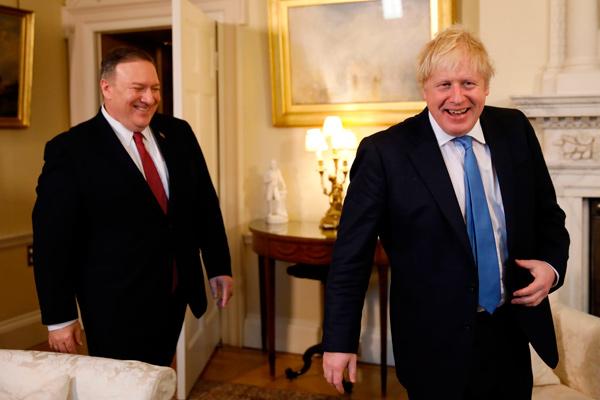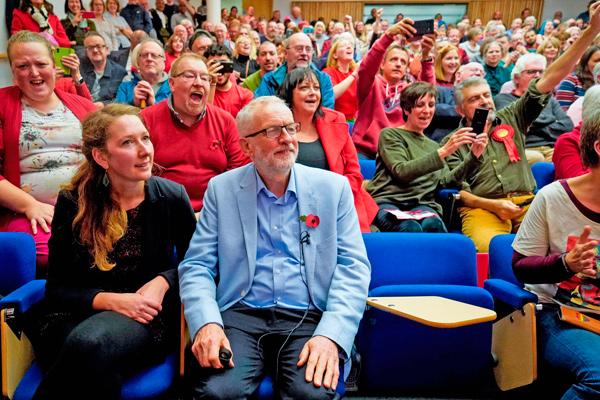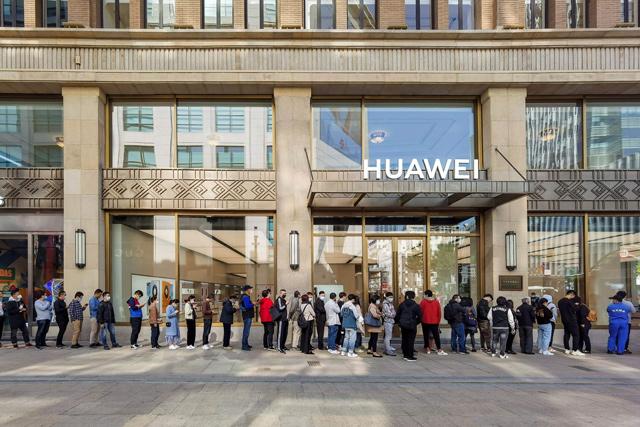You are here
Brexit throws up foreign policy balancing act for Britain
By AFP - Jan 18,2020 - Last updated at Jan 18,2020
LONDON — Prime Minister Boris Johnson appears torn between the United States and the European Union as he tries to chart Britain's course on the international stage weeks before Brexit.
From the fraught situation in Iran to controversy over Chinese telecoms giant Huawei, Johnson has been accused of trying to avoid aggravating Britain's historic ally and US President Donald Trump.
At the same time the British premier, who wants future trade deals with both Washington and Brussels, has stopped short of breaking from the European bloc's positions on key global issues.
Striking such a delicate balance has proved tricky, especially after top Iranian general Qassem Soleimani was killed by US air strikes earlier this month.
Johnson was on holiday in the Caribbean at the time and initially remained silent. He eventually issued a statement several days later saying Britain "will not lament his death".
He then agreed with the leaders of Germany and France to work towards calming tempers in the region following the targeted strike.
He has also looked both ways over the thorny issue of the Iranian nuclear deal, a key dividing line between the US and Europe, which backs persevering with the pact.
Trump abandoned the 2015 accord with Tehran in May 2018 and this month publicly urged all other powers to follow suit.
Rhetoric vs substance
Richard Goldberg, a Trump security adviser until last week, told the BBC Wednesday that Washington could make a future trade deal with Britain conditional on support for that stance.
“The question for prime minister Johnson is: As you are moving towards Brexit... what are you going to do post January-31 as you come to Washington to negotiate a free trade agreement with the United States?” he said.
“It’s absolutely in his interests and the people of Great Britain’s interests to join with President Trump... to realign your foreign policy away from Brussels.”
Jeremy Shapiro, research director at the European Council on Foreign Relations, said Johnson was unlikely to get any credit from Trump’s administration without giving them his full support.
“To them, you’re either a vassal or an enemy,” he told the New York Times earlier this month.
He suggested Johnson risked the same criticism as prime minister Tony Blair, who was accused of being president George W. Bush’s “poodle” over his support for the US-led invasion of Iraq.
Johnson raised eyebrows Tuesday when he said replacing the accord with a “Trump deal” would be “a great way forward”.
“If we are going to get rid of it... let’s replace it with the Trump deal. That’s what we need to see,” he said.
But just hours later Britain joined Paris and Berlin in insisting it remained committed to the nuclear deal and would not join “a campaign to implement maximum pressure against Iran” championed by Trump.
‘Avoid making enemies’
Simon Usherwood, of the University of Surrey’s politics department, noted that despite occasional rhetoric, Johnson “has actually been more in line with the European approach” on Iran.
“He plays the same kind of approach that [French President] Emmanuel Macron has played with Trump, which is to make Trump feel important,” he told AFP.
“A lot of it is about labelling things in a way that Trump might like, even if the substance does not really change.”
Britain is also under intense pressure from Washington not to allow Huawei, which the US believes is susceptible to Beijing’s control, to develop its domestic 5G network.
The issue is another headache for Johnson, as he weighs a future US trade deal with his aspiration for a newly “global Britain” after Brexit, and reports of an imminent visit to Washington.
“If the UK is becoming a global actor, then to compromise your trade relations and political relations with the largest growing economy in the world, China, seems problematic,” said Usherwood.
Meanwhile, the stated aim of some EU members, including Britain, to impose a digital services tax on US tech giants could strain London’s transatlantic ties.
Usherwood suggested the pronouncements could be more rhetoric than substance.
But simply following the US on the global stage could “make life more difficult” for Johnson after he sold Brexit to the British public with a message to “take back control”, he said.
“He is trying to avoid making enemies in the international scene but also trying to show that the UK matters,” the politics professor added.
Pauline Froissart
Related Articles
LONDON — Prime Minister Boris Johnson will hold talks on post-Brexit trade with the top US diplomat on Thursday, eve of Britain's historic d
LONDON — British Prime Minister Boris Johnson on Sunday apologised for not taking Britain out of the European Union by October 31, while Bre
SHANGHAI — Huawei's revenue growth slowed significantly in the first nine months of 2020, the Chinese telecom giant said on Friday, citing "



















